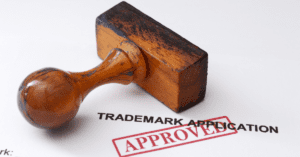Can a company recoup damages based on foreign sales? A recent trademark dispute between companies from different countries might soon shed new light on territorial trademark issues.
The case in question involves Hetronic International, an American company that manufactures radio remote controls for heavy-duty construction equipment, and Abitron, the Austrian company that distributed Hetronic’s goods in the European market.
The partnership between the two companies began in 2006. In 2011, an Abitron employee believed that Abitron owned Hetronic-related IP after reading an agreement between Hetronic and the distributor’s predecessor. This led to Abitron manufacturing and selling products similar to Hetronic’s and under the Hetronic name—reaping millions of profit. In 2014, Hetronic discovered these unauthorized sales and subsequently terminated the parties’ distribution agreement. They sued Abitron in the Western District of Oklahoma for infringement under the Lanham Act, in which the jury awarded Hetronic $114 million in damages, $90 million related to violations of federal trademark law.
Dissatisfied with the ruling, Abitron appealed to the United States Court of Appeals for the Tenth Circuit. The Courts agreed with the trial result; however, the substance of Abitron’s appeal has ignited debate.
Although American IP Laws such as the Lanham Act generally do not act extraterritorially, the Supreme Court has determined that the Act applies to the allegedly unlawful conduct of a United States citizen abroad when its foreign conduct affected American markets. However, there is no established, uniform approach for conducts that are entirely foreign, leading to differing opinions between cases over the years.
Abitron argued that even though the Lanham act can act extraterritorially, they believe it does not apply to their conduct. They argued that they are a foreign company, and most of the sales were outside the United States, thus unlikely to confuse American consumers. Meanwhile, the Tenth Circuit’s concluded that the Lanham Act applied to foreign defendants’ foreign sales of infringing products due to its substantial on U.S. commerce– denying millions of dollars of foreign sales to the U.S.
Abitron appealed again, this time to the U.S. Supreme Court. Arguing that the ruling “defies basic territoriality principles, contradicts U.S. treaty commitments, threatens international friction, and invites other countries to respond in kind”. The Biden Administration also weighed in on this issue. U.S. Solicitor General Elizabeth Prelogar stated that the ruling failed to analyze whether the infringement was likely to confuse American consumers and that the Lanham Act should only apply if the foreign conduct could deceive American consumers. Moreover, she states that the Tenth Circuit’s decision risks the globalization of U.S. trademark law.
Ultimately, The Supreme Court announced that it will take on the case in 2023, with a ruling likely to come by June. This case is a chance for the Supreme Court to bring uniformity to an increasingly relevant issue. As we wait for the Court’s ruling, two things are certain. As modern-day commerce becomes increasingly international, clarity to territorialism and trademark infringement issues is crucial. Furthermore, whatever ruling the Court gives could impact the business model of global retailers. Entrepreneurs with relations to America or American companies surely need to keep an eye on this development.
Am Badar & Am Badar IP Law Firm is the right place for Partners in need of IP related services or consultation. Contact us via ambadar@ambadar.co.id, we will provide the best solutions according to your situation.
Source:






